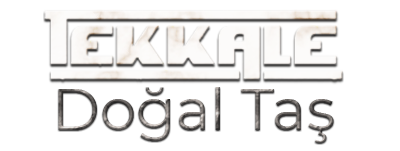Understanding the Importance of Expert Blogs
An expert blog serves as a cornerstone for establishing online authority and driving targeted traffic. By sharing specialized knowledge, you position yourself as a thought leader in your industry. This not only enhances your credibility but also aligns with effective SEO strategies that prioritize valuable, niche-specific content. A well-crafted expert blog can transform passive readers into loyal followers, creating long-term engagement and visibility.
Key Elements of a Successful Expert Blog
A thriving expert blog requires more than just compelling content—it demands strategic planning. Core elements include consistent posting schedules, mobile responsiveness, and intuitive navigation. Integrating content marketing tactics ensures your blog remains relevant while optimizing for search engines. Prioritize readability, visual appeal, and clear calls to action to maximize user experience and retention.
Choosing the Right Niche for Your Expert Blog
Selecting a niche is critical. It defines your audience and differentiates your blog from competitors. Focus on a specific area where you have expertise or passion. Tools like Google Trends and keyword analyzers can help validate demand. For deeper insights, explore resources at https://onlien-rich-palms.com/. This decision shapes your blogging tips and long-term growth strategy, ensuring your content resonates with the right people.
Researching High-Search Volume Keywords
SEO strategies rely heavily on keyword research. Identify terms with high search volume and low competition using tools like SEMrush or Ahrefs. Incorporate these keywords naturally into headlines, subheadings, and body text. Balancing primary and secondary keywords helps improve rankings while maintaining content quality. Prioritize long-tail keywords for niche targeting and higher conversion rates.
Creating High-Quality Content Consistently
Content marketing thrives on consistency and depth. Publish well-researched articles that address reader pain points and provide actionable solutions. Use storytelling, data-driven insights, and multimedia to enhance engagement. Regularly updating older posts with fresh information keeps your blog relevant and improves search engine visibility over time.
Optimizing Blog Posts for SEO Success
Optimization extends beyond keywords. Ensure meta descriptions, alt text for images, and URL structures are concise and keyword-rich. Use header tags (H1, H2, H3) to organize content hierarchically. Internal linking and external references to authoritative sources further strengthen your online authority and signal value to search engines.
Leveraging Internal Linking Strategies
Internal linking connects your blog’s pages, improving navigation and distributing page authority. Link to related articles within your content to guide readers and reduce bounce rates. This practice also reinforces your SEO strategies by helping search engines understand your site’s structure and relevance.
Engaging Your Audience Through Comments and Interaction
Encourage reader interaction by responding to comments and fostering discussions. This builds community and signals to search engines that your content is valuable. Engaged audiences are more likely to share your posts, boosting organic reach and reinforcing your expert blog’s impact.
Measuring Blog Performance with Analytics Tools
Track metrics like traffic sources, bounce rates, and time-on-page using tools like Google Analytics. Analyze which topics perform best and refine your blogging tips accordingly. Data-driven adjustments ensure your content stays aligned with audience needs and search engine preferences.
Staying Updated with SEO Trends and Algorithm Changes
Search algorithms evolve constantly. Stay informed about updates from Google and other platforms to adapt your SEO strategies. Follow industry blogs, attend webinars, and experiment with new formats like video content or interactive elements to maintain relevance and visibility.
Building Authority Through Guest Posting and Collaborations
Guest posting on reputable sites amplifies your reach and strengthens your online authority. Collaborate with influencers or industry leaders to co-create content. These efforts not only drive traffic but also establish your expert blog as a trusted resource in your niche.
Designing a User-Friendly Blog Layout
A clean, intuitive layout enhances user experience and reduces friction. Use readable fonts, ample white space, and a logical flow of content. Mobile optimization is non-negotiable, as most users access blogs via smartphones. Prioritize speed and accessibility to retain visitors and improve search rankings.
Monetizing Your Expert Blog Without Compromising Quality
Monetization options include affiliate marketing, sponsored posts, and digital products. However, always prioritize content quality to maintain trust. Align monetization with your content marketing goals, ensuring ads and promotions feel organic and beneficial to your audience.
Repurposing Content Across Multiple Platforms
Extend your expert blog’s reach by repurposing content into social media posts, podcasts, or newsletters. This maximizes visibility while reinforcing key messages. Tailor formats to each platform’s audience to maintain engagement without duplicating efforts.
Protecting Your Blog from Common Security Threats
Implement SSL certificates, regular backups, and security plugins to safeguard your blog. Cyberattacks can damage your reputation and disrupt operations. Prioritize updates to your CMS and plugins to prevent vulnerabilities, ensuring your SEO strategies remain uninterrupted.
Automating Tasks to Scale Your Blogging Efforts
Use tools like scheduling platforms, automated email newsletters, and analytics dashboards to streamline workflows. Automation saves time while maintaining consistency, allowing you to focus on creating high-value content marketing and refining your expert blog’s impact.
- Conduct monthly keyword audits to refine SEO strategies.
- Create a content calendar to ensure blogging tips are delivered consistently.
- Engage with your audience through comments and social media to build online authority.
